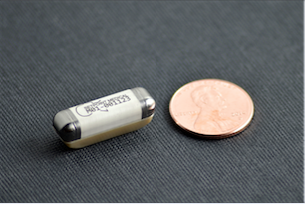Bioelectronic Medicine Modifies Chronic Diseases With Doses Of Electricity
Executive Summary
Neurostimulation devices have been making a difference in the lives of patients for decades, when they entered common use for pain, epilepsy and other chronic conditions. These devices serve an important role, delivering drugs or electric signals to mask pain or disrupt seizure patterns. However, they typically address symptoms and aren't usually able to address the underlying disease.
Building on this foundation and converging with advances in bioengineering, immunology, neuroscience and understanding of disease mechanisms is the emerging field of bioelectronic medicine.
What is Bioelectronic Medicine?
Bioelectronic medicine, neuromodulation, vagus nerve stimulation and electroceuticals are all terms that have been used somewhat interchangeably, but there are differences. What sets bioelectronic medicine apart is the biological impact it has in the body, going beyond the mediation of symptoms to address the underlying disease by harnessing the body’s own mechanisms to treat the disease.
Similar to large and small molecule drugs, bioelectronic medicine therapies act through targeted mechanisms of action to treat diseases. Like drugs, certain bioelectronic devices can trigger the release of endogenous neurotransmitters to affect immune-mediated and receptor-mediated pathways. However, the method of triggering the signal release is different, using the delivery of targeted doses of electricity.
Bioelectronic medicine uses small implanted devices to deliver targeted electrical pulses along existing physiologic pathways to activate mechanisms in the body, triggering the body’s biological responses, creating a systemic disease-fighting effect that can last hours or days.
A number of disease areas are emerging as bioelectronic medicine targets. Scientists and researchers at the NIH, DARPA, MIT, Northwell Health’s Feinstein Institute, GSK and other academic institutions and companies globally believe bioelectronic medicines may have an important role to play in diseases like rheumatoid arthritis, Crohn's disease, Alzheimer’s, asthma, multiple sclerosis and diabetes. Several biomedical companies are developing bioelectronic medicine therapies, and investors, device and pharmaceutical companies are entering the field, with a combined total of more than $1 billion invested in bioelectronic medicine to date.
First Clinical Data
Valencia, California-based SetPoint Medical is first in the clinic with bioelectronic medicine trials in rheumatoid arthritis and Crohn's disease. SetPoint published data demonstrating positive results from a first-in-human trial in rheumatoid arthritis in Proceedings of the National Academy of Sciences (PNAS) (available here) and presented positive results in Crohn’s disease at the 2016 United European Gastroenterology meeting.
SetPoint is targeting inflammatory diseases by using vagus nerve stimulation to activate specific fibers within the vagus nerve to elicit a response from the body’s natural inflammatory reflex, discovered by SetPoint co-founder Dr. Kevin Tracey. Neurons within the reflex pathways then interact with immune cells through known receptors in specific anatomic regions. This in turn modifies cell behavior in predictable and therapeutic ways, reducing inflammation and symptoms of disease.
SetPoint plans to begin clinical trials in 2017 with the company’s proprietary bioelectronic device, which is substantially smaller than earlier research devices and customized for dosing specific to inflammatory diseases.
SetPoint bioelectronic implant
Why Bioelectronic Medicine?
Though physicians have access to many effective drugs, there are patients with debilitating diseases who do not respond well to pharmacologic or biologic treatments and are left with few therapeutic options. For other patients, biologic therapies can have serious or potentially devastating side effects, and a number of them carry serious black box warnings. Biologic therapies also can be very expensive.
Bioelectronic medicine has the potential to offer an alternative solution with improved quality of life where conventional treatments have failed – a solution that could provide fewer side effects, lower cost and better compliance.
Anthony Arnold is CEO of SetPoint Medical, a biomedical technology company developing a bioelectronic therapy for inflammatory diseases. Arnold has more than 20 years of medical device industry experience, including leadership positions at Advanced Bionics/Boston Scientific, Medtronic and Smith+Nephew. For more info: www.setpointmedical.com .